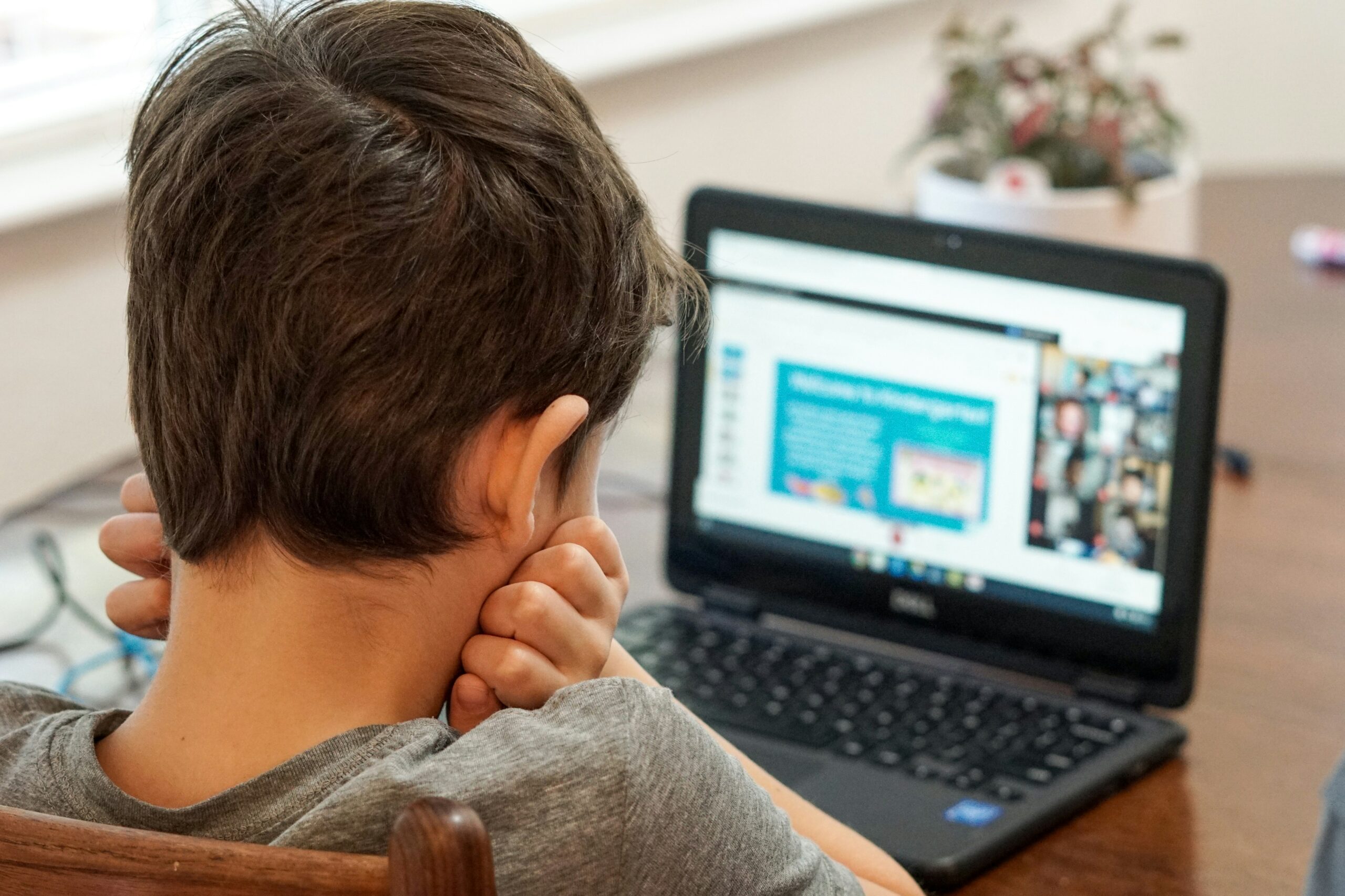Introduction to the Technological Transformation in Education
The evolution of education has been a rich tapestry woven with advancements and innovations that have reshaped the learning experience over centuries. Historically, education was predominantly characterized by face-to-face interactions within physical classroom settings. Traditional teaching methods relied heavily on textbooks and lectures, with minimal engagement from technological tools. This standard persisted for a considerable time, providing a structured, albeit rigid, framework for knowledge dissemination.
The introduction of basic technological tools such as overhead projectors and audio-visual aids marked the initial incorporation of technology in classical education systems. As these instruments facilitated a more dynamic delivery of information, they laid the groundwork for future advancements. The emergence of personal computers in the late 20th century heralded a significant shift, prompting educators to rethink pedagogical approaches and embrace new teaching methodologies. This transition paved the way for the gradual integration of digital tools into curricula, soon transforming classrooms into vibrant learning ecosystems.
As technology continued to evolve, so too did the educational landscape, culminating in the rise of digital learning environments. Online courses, interactive learning platforms, and multimedia educational resources have since become integral components of modern education. This transition to technology-enhanced learning has empowered both educators and learners, enabling personalized and accessible education irrespective of geographical constraints. The democratization of knowledge through the internet has further accelerated this transformation, making resources available to a global audience.
In adapting to these rapid changes, educators are challenged to blend traditional pedagogical strategies with innovative digital practices. This evolution necessitates continual learning and adaptation from both educators and students, emphasizing the importance of staying current in a perpetually changing world driven by technological advancements. The upcoming sections will delve deeper into specific technologies shaping the educational experience, unearthing their potential to revolutionize learning.
Innovative Learning Tools and Technologies
In recent years, the landscape of education has undergone a significant transformation driven by innovative learning tools and technologies. Online learning platforms have emerged at the forefront, providing access to a vast array of courses across diverse subjects. These platforms, such as Coursera and edX, offer flexible learning opportunities that cater to learners of all ages and backgrounds. By utilizing a blend of video lectures, quizzes, and discussion forums, these platforms enable students to engage with educational content in a manner that suits their individual learning preferences.
Furthermore, interactive learning applications have gained popularity by making education more engaging and hands-on. Apps such as Kahoot and Quizlet incorporate gamification techniques that motivate students to participate and collaborate. These applications not only enhance retention but also foster a competitive spirit while facilitating cooperative learning among peers. While the benefits are substantial, it is essential to recognize potential limitations, such as the risk of distraction and the need for organizational support to ensure effective usage.
In addition to these platforms and applications, virtual and augmented reality (VR and AR) are revolutionizing the ways in which educators present complex concepts. With the ability to create immersive experiences, VR can transport students to historical events or enhance scientific understanding through virtual labs. AR, on the other hand, overlays digital information onto the physical world, enriching real-world learning experiences. Nonetheless, the integration of VR and AR in classrooms requires careful consideration of costs and accessibility to ensure all students can benefit from these technologies.
Artificial intelligence (AI) has also made a substantial impact on personalized learning. By analyzing learner behaviors and preferences, AI-driven systems such as intelligent tutoring systems can provide customized pathways tailored to individual needs. This level of personalization promotes more effective learning outcomes. However, it is crucial to address concerns regarding data privacy and the ethical implications of AI in education.
The Rise of Remote and Hybrid Learning Models
The emergence of remote and hybrid learning models has significantly reshaped the educational landscape, particularly in response to global events such as the COVID-19 pandemic. As educational institutions were compelled to transition to online formats practically overnight, both students and educators found themselves navigating a new paradigm of learning that integrated technology into their daily experiences. The rapid adoption of these models has revealed both strengths and challenges inherent in the evolving educational practices.
Remote learning, characterized by fully online instruction, has enabled flexibility and accessibility, allowing students from diverse locations to participate in educational experiences without the constraints of geographical boundaries. However, the effectiveness of remote education is heavily dependent on technological infrastructure and digital literacy. Students who lack access to reliable internet and devices may struggle to engage fully, creating an equity gap that needs to be addressed. Moreover, the challenge of maintaining engagement and motivation within a virtual setting is a concern for both educators and learners, necessitating innovative strategies to foster interaction and collaboration.
Hybrid learning models, which combine in-person and online elements, have emerged as a potential solution, offering flexibility while retaining some traditional classroom benefits. This approach can enhance engagement by allowing students to benefit from face-to-face interactions alongside the convenience of online resources. However, the implementation of hybrid systems raises questions regarding how best to manage different learning environments and varying student needs.
As educational institutions look towards the future, it is crucial to evaluate how these models influence teaching methodologies and pedagogical frameworks. The lessons learned from remote and hybrid learning during unprecedented times will likely inform future policies, paving the way for more inclusive and adaptive educational practices that consider the diverse needs of all students.
Preparing for the Future: Skills for Lifelong Learning
In today’s technology-driven world, the landscape of education is evolving at an unprecedented pace. As such, the essential skills required for lifelong learning have shifted dramatically. Digital literacy stands at the forefront of this transformation. Mastery of digital tools and platforms is no longer optional; it is a fundamental competency that empowers learners to navigate an increasingly complex information landscape. This includes not only proficiency in using technology but also the ability to evaluate sources of information critically and responsibly.
Moreover, critical thinking emerges as another crucial skill in preparing for the future. As learners engage with diverse perspectives, they must be equipped to analyze, evaluate, and synthesize information effectively. This entails questioning assumptions, recognizing biases, and developing well-reasoned arguments. By fostering critical thinking skills, educators can empower students to not only absorb information but also to question and innovate, preparing them for the challenges of a rapidly changing workforce.
Adaptability is yet another key competency. The ability to adjust to new circumstances and learn new skills quickly will be paramount as technology continually reshapes industries. Emphasizing the importance of flexibility in learning curriculums will help students thrive in environments that demand continuous evolution and resilience. In conjunction with adaptability, emotional intelligence plays a pivotal role in effective collaboration and communication in educational and professional settings. Understanding one’s emotions, as well as those of others, can enhance teamwork and conflict resolution, which are essential in any future career landscape.
Recognizing the importance of these competencies, educators must commit to continuous professional development to stay abreast of technological advancements. This ongoing learning enables teachers to better equip their students with the necessary skills for success. As education stakeholders work together to foster these skills, they can create an inclusive and dynamic learning environment that prepares learners for a future characterized by both challenges and opportunities.


